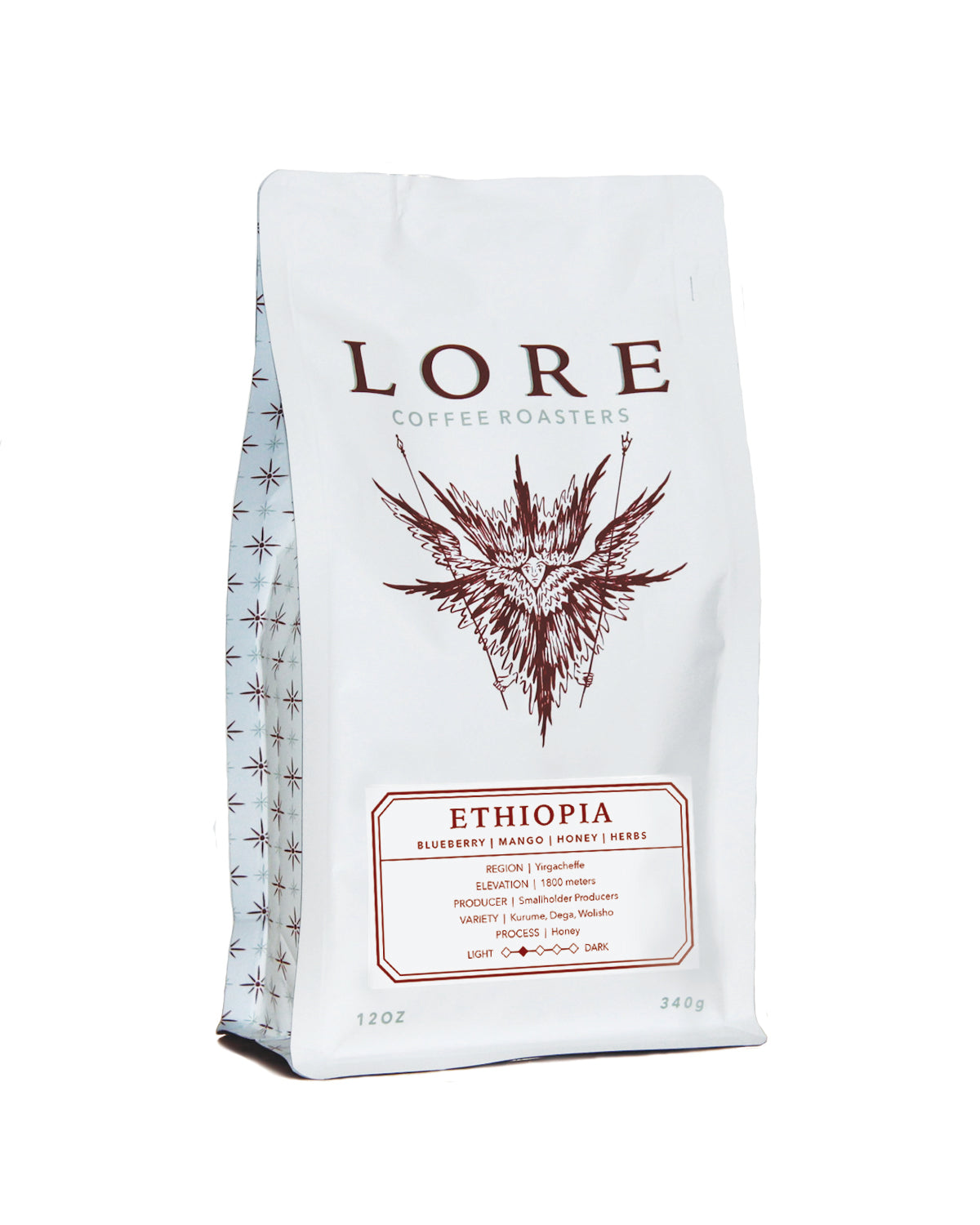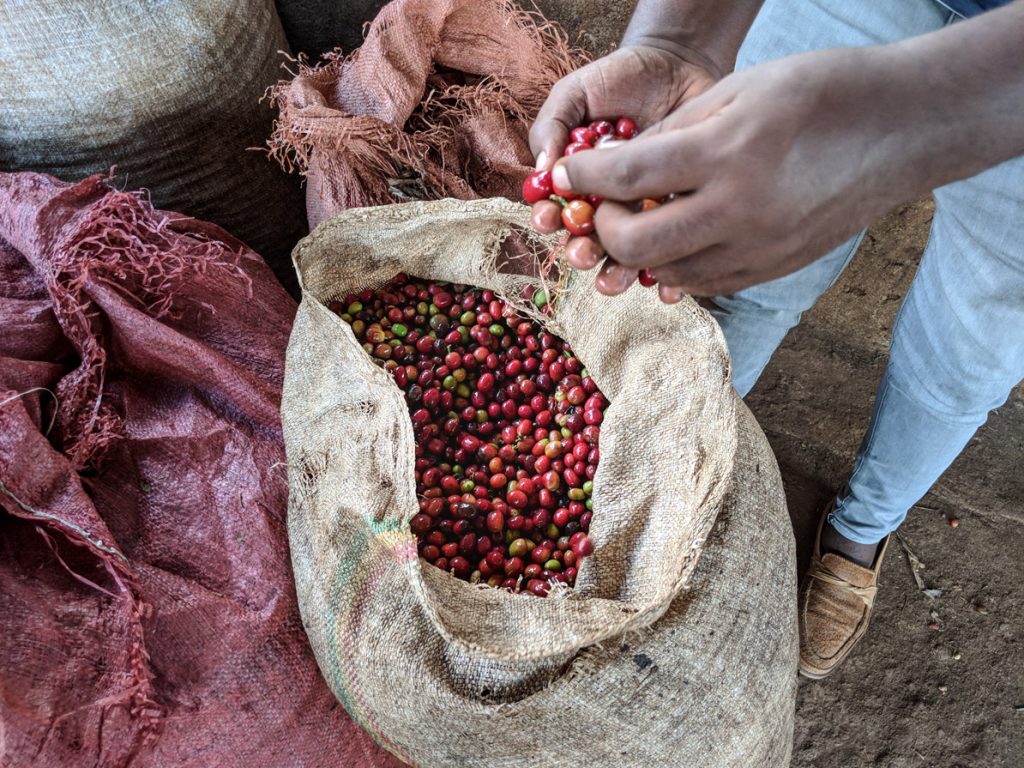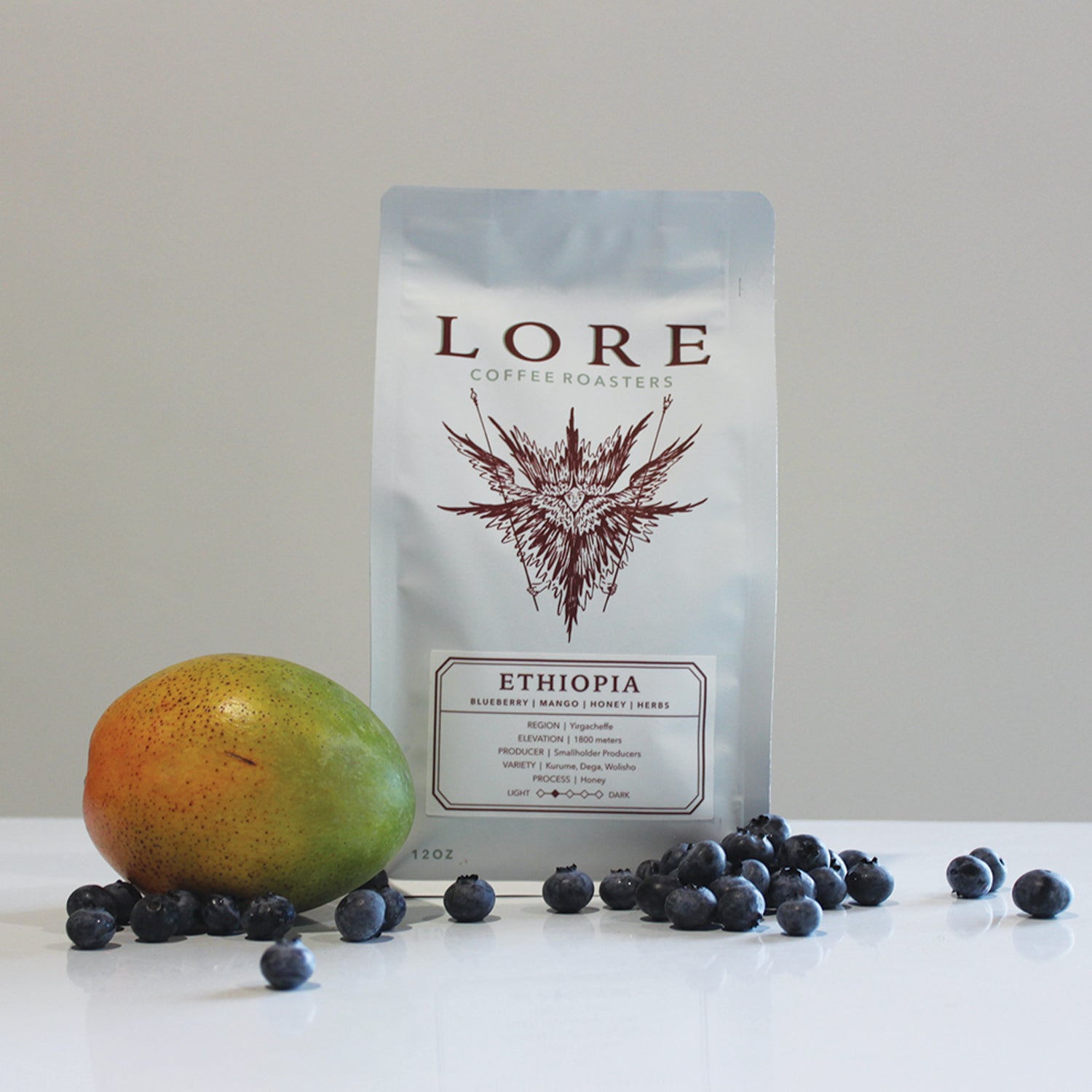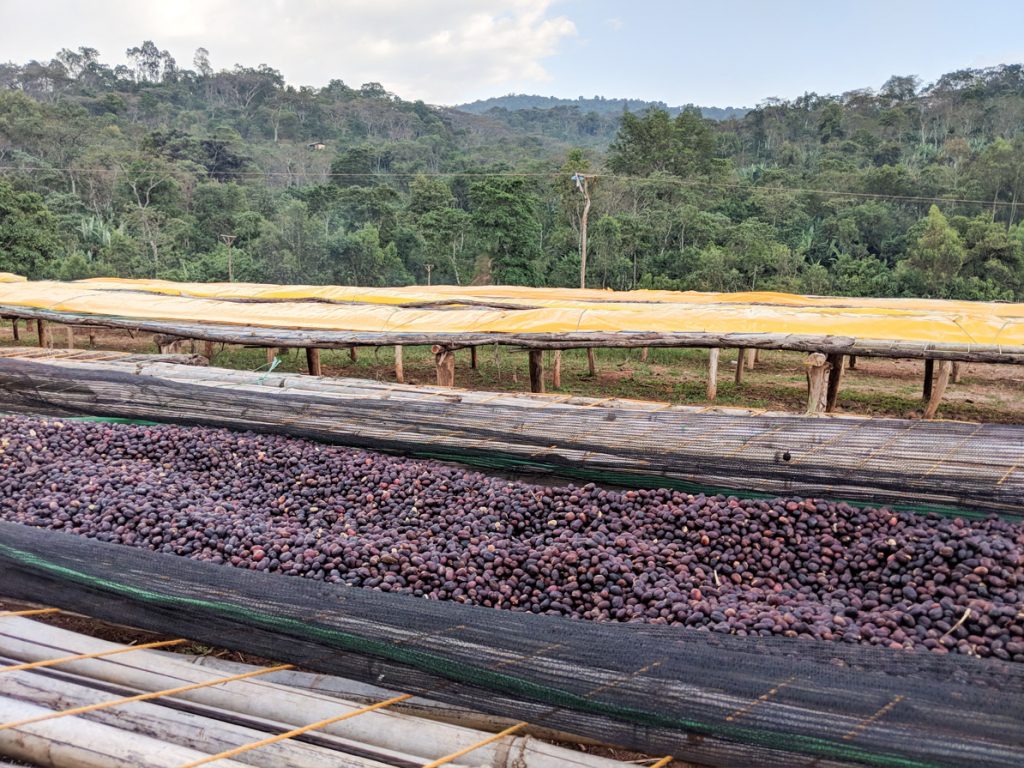



Ethiopian Yirgacheffe Honey | Single Origin
Blueberry, Mango, Honey, Herbs
Region | Yirgacheffe
Elevation | 1800 meters
Producer | Smallholder Producers
Variety | Kurume, Dega, Wolisho
Process | Honey
Roast | Light
At the Roastery we call this one, "Koke Honey" for short.
Yirgacheffe is considered by many to be the birthplace of coffee and the coffee trees grown in the region are a naturally occurring mix of heirloom varietals cultivated among other species in coffee gardens and coffee forests. Washed Coffee was introduced to Ethiopia in the 1970’s, and Yirgacheffe was the location of the first wet processing mill.
Literally translated as “Land of Many Springs,” Yirgacheffe has the ideal topography, elevation, and water sources to produce and process exceptional coffees. The climate in Yirgacheffe is warm and temperate. The Yirgacheffe woreda is 409km from Ethiopia’s capital of Addis Ababa and has a population of almost 200,000 people, less than 10% of whom live in cities.
Coffee farmers in Yirgacheffe are typically multi-generational, small-scale landholders, sometimes with only a few acres of land. Most coffees in Yirgacheffe are sold as cherry to centralized washing stations that help further separate flavor profiles.
Coffee grows in red-brown fertile soil under the shade of various trees in the many districts and kebeles of the Gedeo Zone. Coffee there is often referred to as Heirloom varieties, many of which were propagated and distributed to farmers in the last 40 years.
In the southern region of Ethiopia, farmers pick coffee selectively, harvesting only ripe cherries individually by hand. Pickers rotate among the trees every eight to ten days, choosing only the cherries which are at peak ripeness.
Many pickers average approximately 100 to 200 pounds of coffee cherries a day, which will produce 20 to 40 pounds of coffee beans. Each worker’s daily haul is carefully weighed, and each picker is paid on the merit of his or her work. The day’s harvest is then transported to the processing plant.
The Washing Station
This lot of Koke Honey was sourced from a total of around 1200 smallholder farmers from Birbes Kela, Koke, Konga, Wedessa, and Tisho kebeles bring their harvested cherries for processing at the Koke and Birbes Kele washing stations.
The Birbes Kela washing station, located in the Birbes Kela kebele, is owned and operated by Semira Negash. The site was founded in 2020 and operates as a vertically integrated exporting partner Ethiopia. Shortly after opening her washing station, Semira quickly established herself as a producer of high-quality coffees placing 23rd in Ethiopia’s 2021 Cup of Excellence.
Harvested cherries are fermented in-cherry for two days prior to being pulped. The pulped coffee is then dried on raised beds to its optimal humidity.
Couldn't load pickup availability
Pickup currently unavailable at HQ
Pairs well with
If you have any questions, you are always welcome to contact us. We'll get back to you as soon as possible, usually within 24 hours on weekdays.
-
Shipping Information
We generally ship with USPS the day after production.
-
Customer Support
you are always welcome to contact us. We'll get back to you as soon as possible, usually within 24 hours on weekdays.
-
Contact Us
hello@loreroasters.com
FAQs
What is your roasting and production schedule?
We roast to order every Wednesday, processing all orders placed before 9:00 AM PST that day. Once roasted, orders are packed and shipped by the end of Thursday.
Retail orders placed after the Wednesday morning cutoff are usually roasted the following week. However, we often roast extra to cushion in your regular orders, so if your coffee is available, it may still ship in the week!
Grinding Schedule: All ground coffee is ground to order just before shipping, so you can be assured your coffee has arrived as fresh as possible.
How can I edit my subscription?
You can edit your subscription through our dedicated management page.
Want 10% off your next order?
New customers can join our newsletter via the pop-up or the signup field at the bottom of our site to receive 10% off their first order. Returning customers are already on our email list and can look forward to frequent seasonal discounts.
If you’ve previously made a purchase but opted out of marketing emails, you can re-subscribe by entering your email into the signup field on our site. This will update your preferences and ensure you receive our latest updates and promotions!
